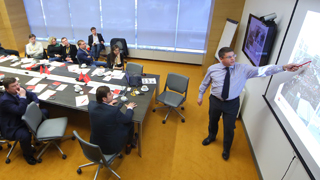
Socijalni dijalog
Socijalni se dijalog može definirati kao pregovori, konzultacije, zajedničke akcije, rasprave i dijeljenje informacija koje uključuje poslodavce i radnike. Funkcionalan socijalni dijalog ključan je alat za oblikovanje radnih uvjeta, a uključuje razne aktere na raznim razinama. Njime se uravnotežuju interesi radnika i poslodavaca te doprinosi gospodarskoj konkurentnosti i društvenoj koheziji.
U nedavnim raspravama o politikama na razini Europe istaknuto je da su se pojavile nove rasprave o socijalnoj pravdi, demokraciji, kvaliteti rada i novim modelima radnih odnosa koje dovode u pitanje tradicionalne industrijske odnose i sustave socijalnog dijaloga, posebice nakon krize u 2008. godini.
Trideset godina nakon povijesne inauguracije europskog socijalnog dijaloga u Val Duchesseu u Bruxellesu, Komisija je ponovno pokrenula proces novog početka za socijalni dijalog na događaju visoke razine koji je okupio organizacije socijalnog partnerstva diljem Europe 5. ožujka 2015. Europski je socijalni dijalog instrument socijalne politike EU-a i izravno doprinosi oblikovanju radnog zakonodavstva i politika.
- Događaj Europske komisije: Novi početak za socijalni dijalog
- Članak na blogu Eurofounda: Od Val Duchessea do Rige: kako ponovno pokrenuti socijalni dijalog?

























